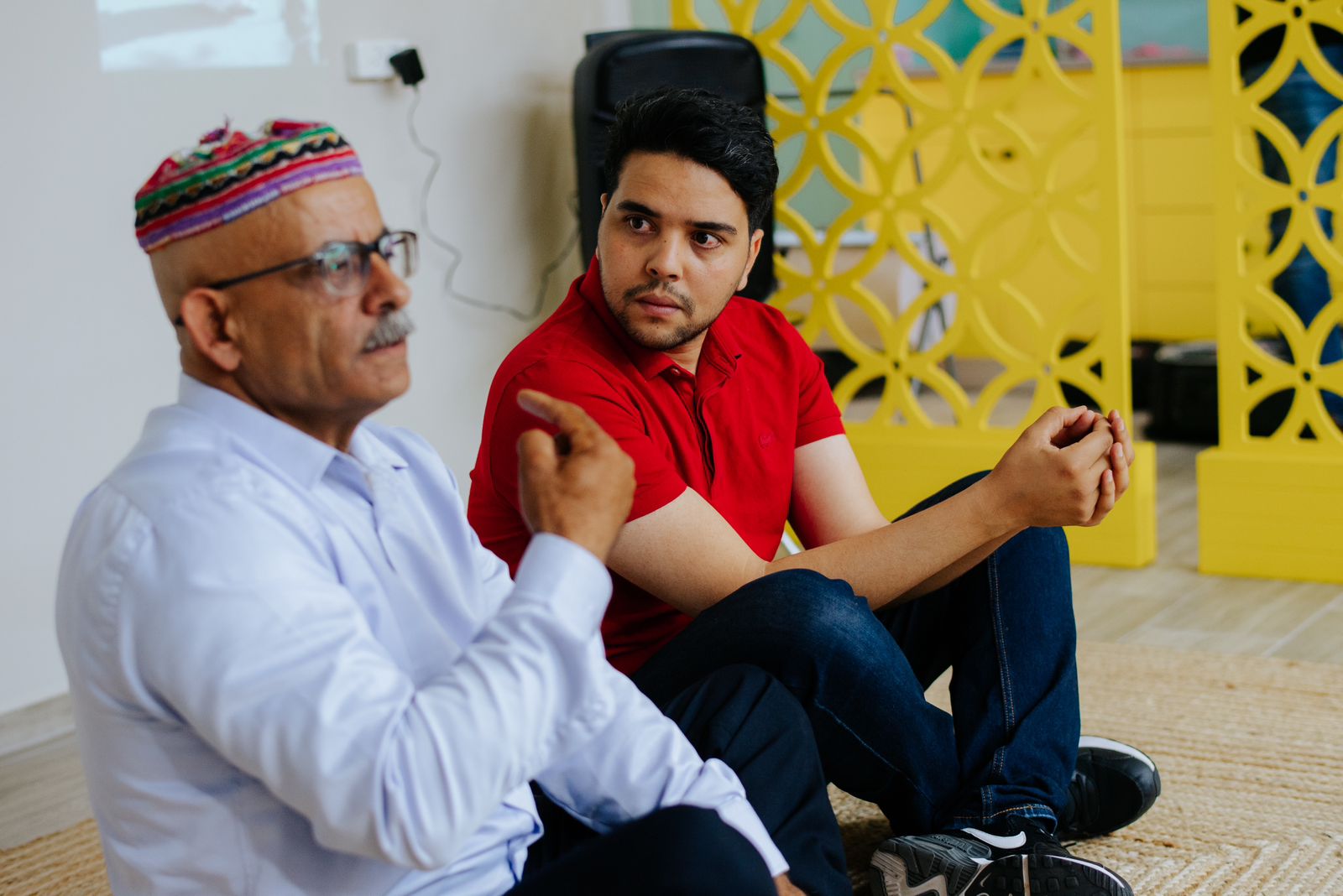Growing up in Marrakesh in the Kingdom of Morocco, Youssef Elazhari had positive views of Jews but not of Israel.
There hadn’t been many Jews around in Morocco since the community immigrated after 1948 with the establishment of modern-day Israel. Today, some 1 million Jews of Moroccan descent live in Israel—one of the largest single immigrant populations—while Morocco’s Jewish population hovers at about 2,000.
“Growing up, my mother would tell me stories about how she and my father lived with the Jews in harmony until they made aliyah,” Elazhari told JNS.
In the 1950s, Jews were very active in Morocco’s cotton and silk industries, an industry in which Elazhari’s paternal grandmother also worked. She shared fond memories of her Jewish best friend and co-worker, Tamou.
“I will admit like many Moroccan teenagers, I was a victim of Al Jazeera propaganda,” he told JNS.
How Elazhari’s views on Israel evolved is one of the stories he told speaking on April 30 at the Wayfarer Theaters in Highland Park, Ill.
“We still have a long way to go, but my vision is to bring Moroccans back from Israel so that they can tell their stories.”
Elazhari is a marketing and advertising entrepreneur, as well as director of the Morocco branch of Sharaka, a three-year-old nonprofit that emerged after the Abraham Accords that brings together young Israeli, Emirati and Bahraini leaders.
The event, sponsored by the Simon Wiesenthal Center, featured Dan Feferman, Sharaka’s executive director in Israel, and Ahmed Khuzaie and Fatema Alharbi, both from Bahrain.
Ahead of the event, Elazhari told JNS that his views on Israel began to change in 2010 when he met Jacky Kaddosh, president of Marrakech’s Jewish community. Kaddosh was lecturing in the city’s Gueliz neighborhood on religious diversity at the synagogue, and Elazhari attended as part of a student delegation from the Center for Language and Culture, an English-language school in Marrakech, the fourth largest city in Morocco.
“This was my first time ever attending a synagogue,” said Elazhari. “You could say I came in there wanting to challenge him when he spoke about Israel.”
He spoke with Kaddosh privately after the event, and that’s when Elazhari began to re-examine his negative preconceptions about Israel.
Zineb Riboua, a research associate at the Hudson Institute, as well as a Moroccan Berber writer and translator, told JNS that Morocco’s Jewish community plays an important role in educating the public about Israel.
“Morocco’s Jewish community is reinforcing ties between Israel and Morocco,” she said. “The Abraham Accords are changing the perception of Israel in the Middle East, and the establishment of official relations is reinforcing the idea that Israel belongs to the Middle East.”

‘A stronger position, geopolitically speaking’
Elazhari told JNS that Morocco’s monarchy has historically maintained good relations with the Jewish community, which paved the way for the Abraham Accords. And Mohammed VI, king of Morocco, has continued that tradition.
“Without him, Morocco would have been like other countries during the Arab Spring”—a wave of pro-democracy protests and uprisings that took place in the Middle East and North Africa in 2010 and 2011—“and people would have directed their hatred against the Jews,” explained Elazhari.
Last May, Elazhari visited Israel for the first time. He was part of a Moroccan delegation organized by Israel-Is, an NGO that connects young Israelis with peers worldwide.
“I felt at home when I was in Israel,” Elazhari told JNS.
In Daliyat al-Karmel, a Druze town, a leader hugged him. Moroccans from the Idrisid Dynasty and the Druze share a heritage of a believed connection to the Muslim prophet Muhammad’s family, said Elazhari.
Two months after the trip, the co-founder of his brand strategy firm, a man named Mohammed, quit, as did another key employee; both cited his outreach to Israel.
“Mohammed told me that he did not want his reputation to be stained,” said Elazhari.
His former partner accused Israel of killing Muslims and wanted nothing to do with Israeli markets and investments. Later that month, Sharaka approached Elazhari, which makes him optimistic about the future of Morocco and Israel.
“Morocco is now in a stronger position, geopolitically speaking, due to its close relations with the U.S. and Israel,” he said. “We still have a long way to go, but my vision is to bring Moroccans back from Israel so that they can tell their stories.”


























